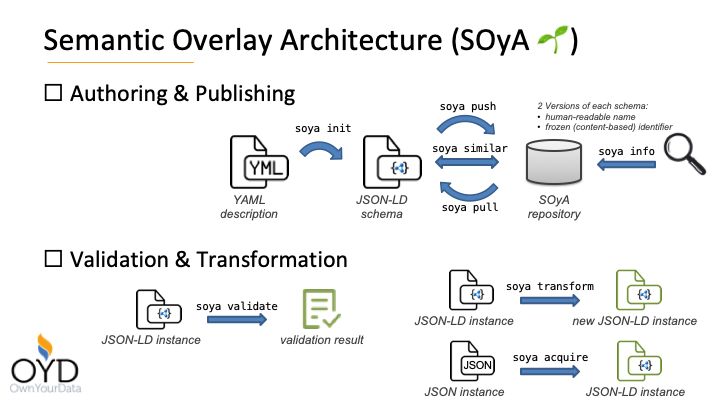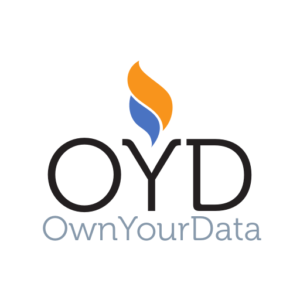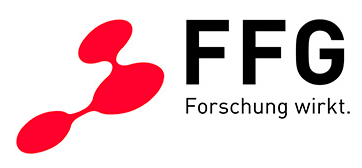One of the goals in our current FFG-funded project IDunion was to develop a framework for managing different data models of Covid19 Credentials. In the course of our project we implemented this functionality through the Semantic Overlay Architecture (SOyA 🌱) and this blogposts provides an introduction to this new technology.
Today’s data exists in a plethora of encodings, syntax, and semantics, requiring stakeholders to spend tremendous resources to enable interoperability and exchange. The Resource Description Framework (RDF) is a W3C recommendation emerging as a robust framework to address these challenges. However, many consider RDF to have a high barrier of entry for developers, unlike mainstream data structures, e.g., JSON or YML. Further, the tool support is still relatively limited, hindering wider adoption. Alternative approaches for supporting data interoperability have been proposed, such as DLite and Layered Schemas. However, these approaches do not fully utilize the available open standards, reducing such approaches’ effectiveness. To help address this issue, we propose the Semantic Overlay Architecture (SOyA), a lightweight RDF-based approach for data interoperability and exchange. SOyA facilitates core functionalities for data interoperability and exchange while reducing the barrier of RDF adoption to the minimum. We evaluated the feasibility of our approach for vaccination data exchange scenario with promising results.
(the previous paragraph is the abstract of a paper submitted to the Semantics 2022 conference – https://2022-eu.semantics.cc/)
The current implementation of SOyA compromises of the following building blocks and the picture below depicts typical tasks:

We have documented the functionality of SOyA in a W3C-conform Speciciation (https://ownyourdata.github.io/soya/) and the full source code is available under the MIT License on Github (https://github.com/OwnYourData/soya/). Examples and an introduction how to use SOyA is available in a dedicated Tutorial we are developing right now here: https://github.com/OwnYourData/soya/blob/main/tutorial/README.md
If you have questions or suggestions don’t hesitate to contact us at support@ownyourdata.eu!




